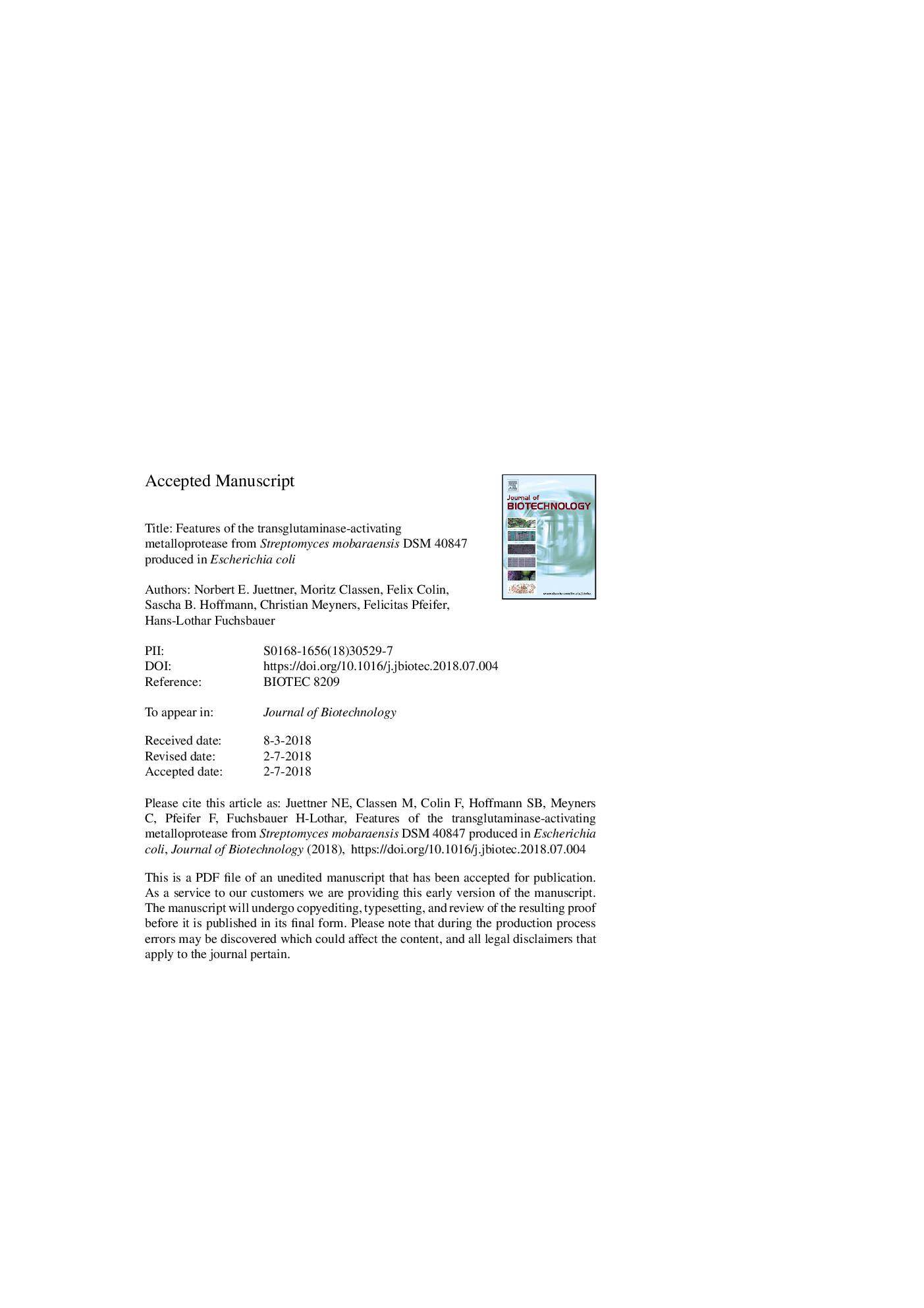| Article ID | Journal | Published Year | Pages | File Type |
|---|---|---|---|---|
| 6490156 | Journal of Biotechnology | 2018 | 29 Pages |
Abstract
Transglutaminase from Streptomyces mobaraensis (MTG) is an important enzyme for numerous industrial applications. Recombinant production requires proteolytic activation of the zymogen. The study provides a convenient procedure for the preparation of the transglutaminase-activating metalloprotease (TAMP) in Escherichia coli. In contrast to wtTAMP, rTAMP exhibited the P domain of convertases as molecular mass of 55.7â¯kDa suggested. Protein integrity was beneficially influenced by 2-5â¯mM CaCl2. Study of pH and temperature optima assigned rTAMP to the neutral metalloproteases, more heat-resistant than Dispase but not thermolysin. Zinc had no inhibiting effect but 3.1 μM EDTA completely reduced activity of 5â¯nM TAMP. MTG, exceeding concentration of rTAMP by three orders of magnitude, was largely activated within few minutes. The kinetic parameters KM (1.31â¯Â±â¯0.05â¯mM) and kcat (135â¯Â±â¯4.3 sâ1), monitored by isothermal titration calorimetry (ITC), further highlighted catalytic efficiency (103,053 Mâ1 sâ1) of rTAMP and rapid processing of MTG. ITC even revealed that inhibition of rTAMP by its intrinsic inhibitory protein SSTI was an enthalpy-driven process resulting in Kd of 199â¯Â±â¯37.9â¯nM. The production procedure of rTAMP in E. coli closes the gap between production and application of recombinant MTG and may enhance relevance of MTG-mediated reactions in pharmaceutical processes.
Related Topics
Physical Sciences and Engineering
Chemical Engineering
Bioengineering
Authors
Norbert E. Juettner, Moritz Classen, Felix Colin, Sascha B. Hoffmann, Christian Meyners, Felicitas Pfeifer, Hans-Lothar Fuchsbauer,
